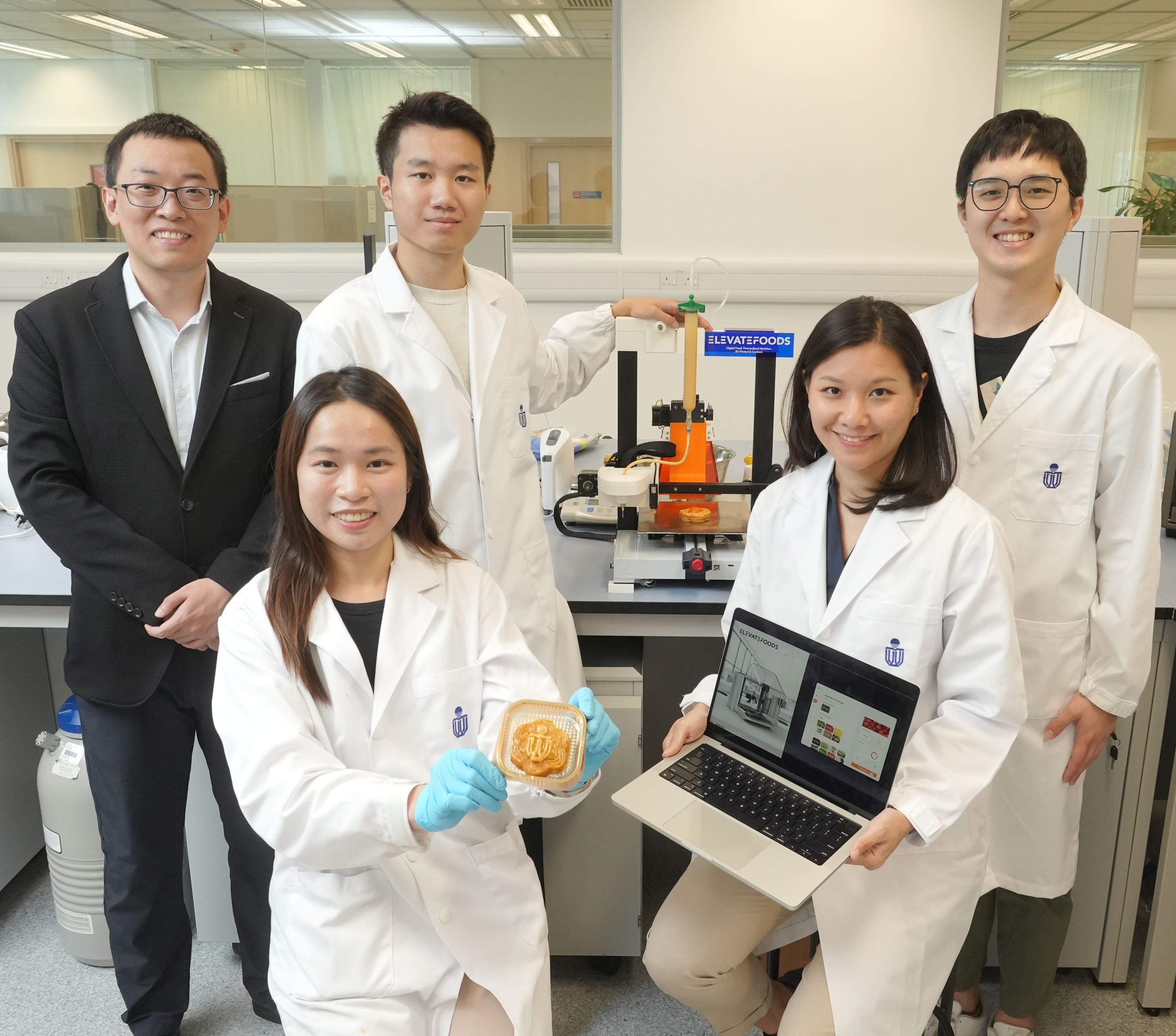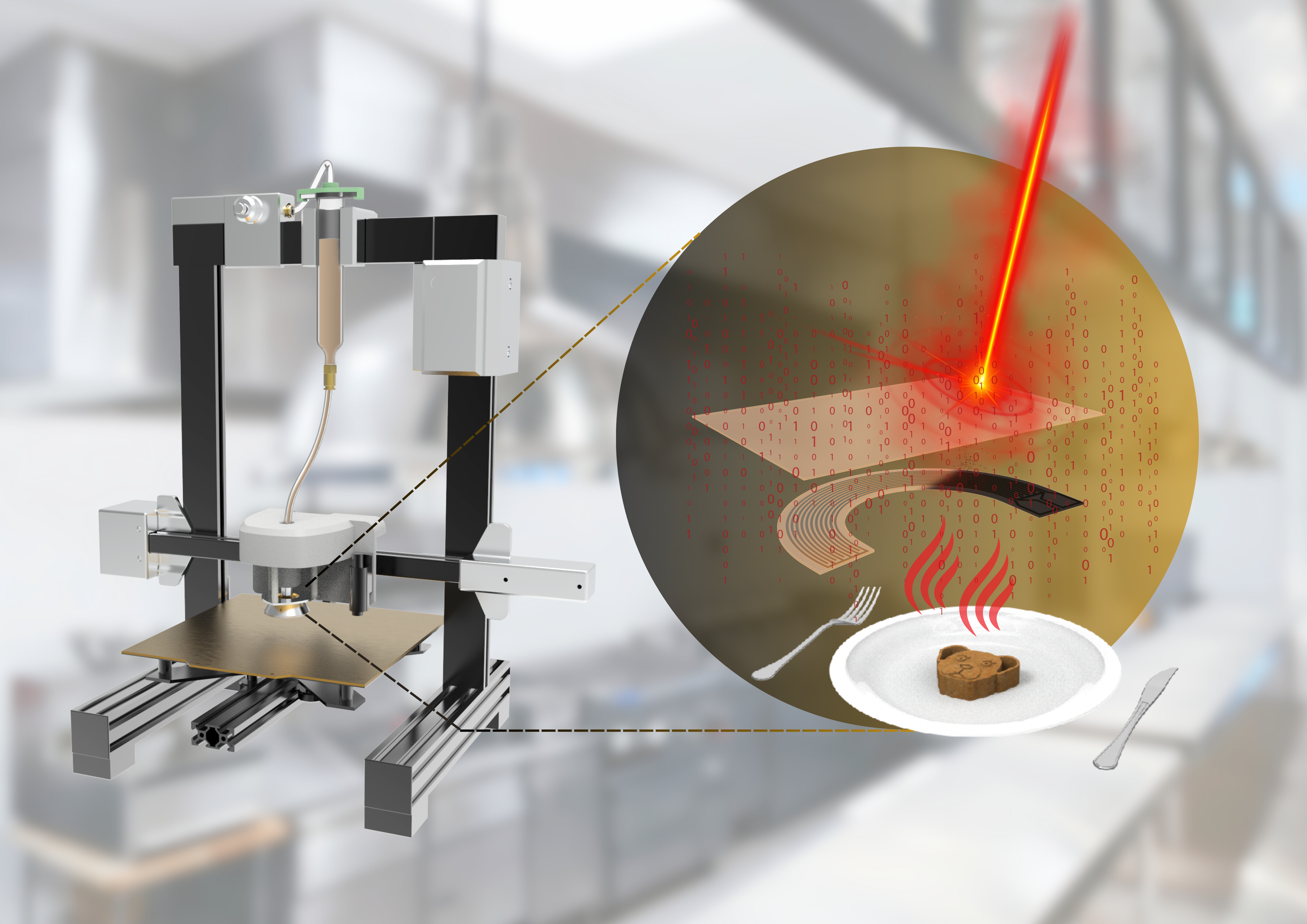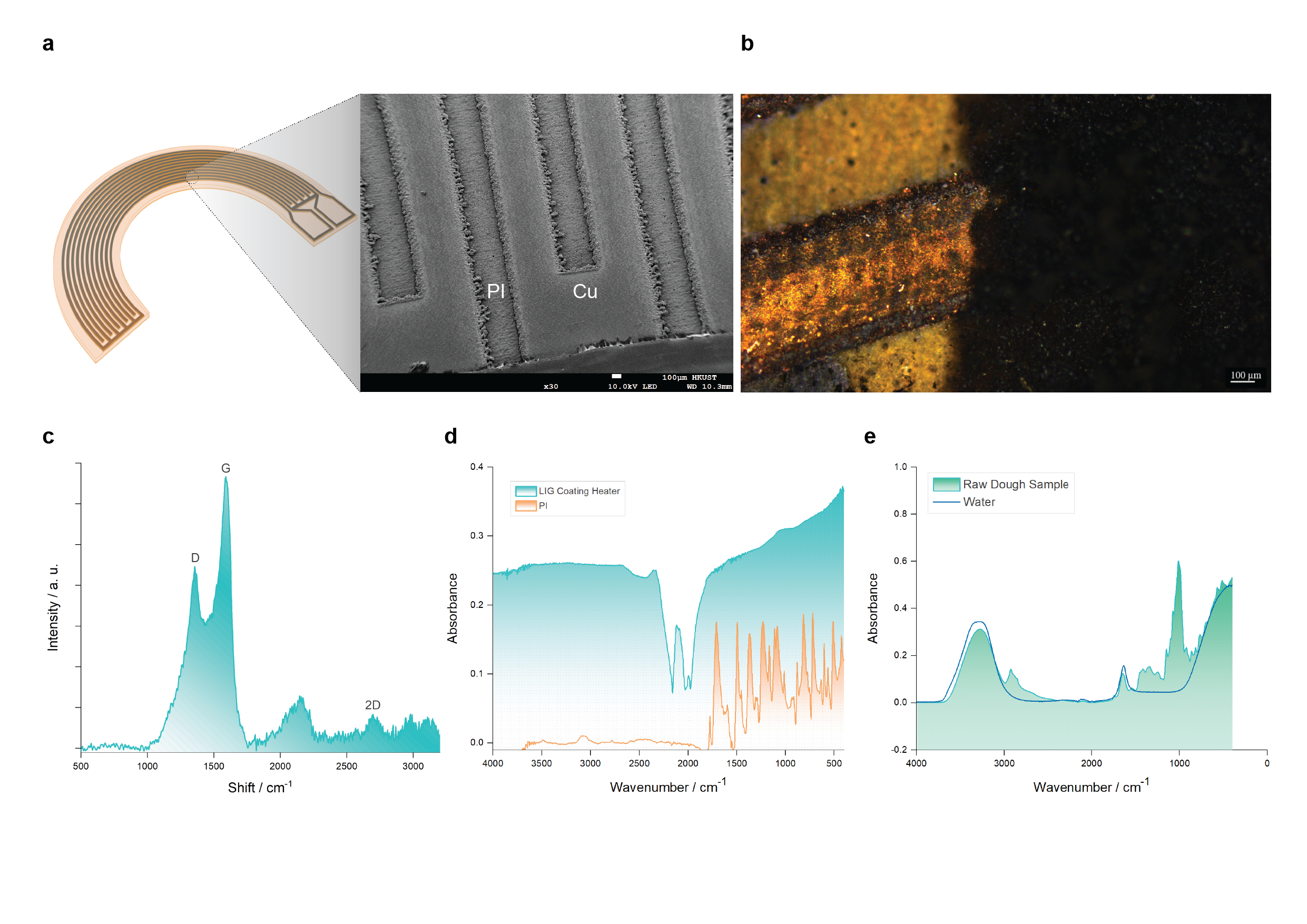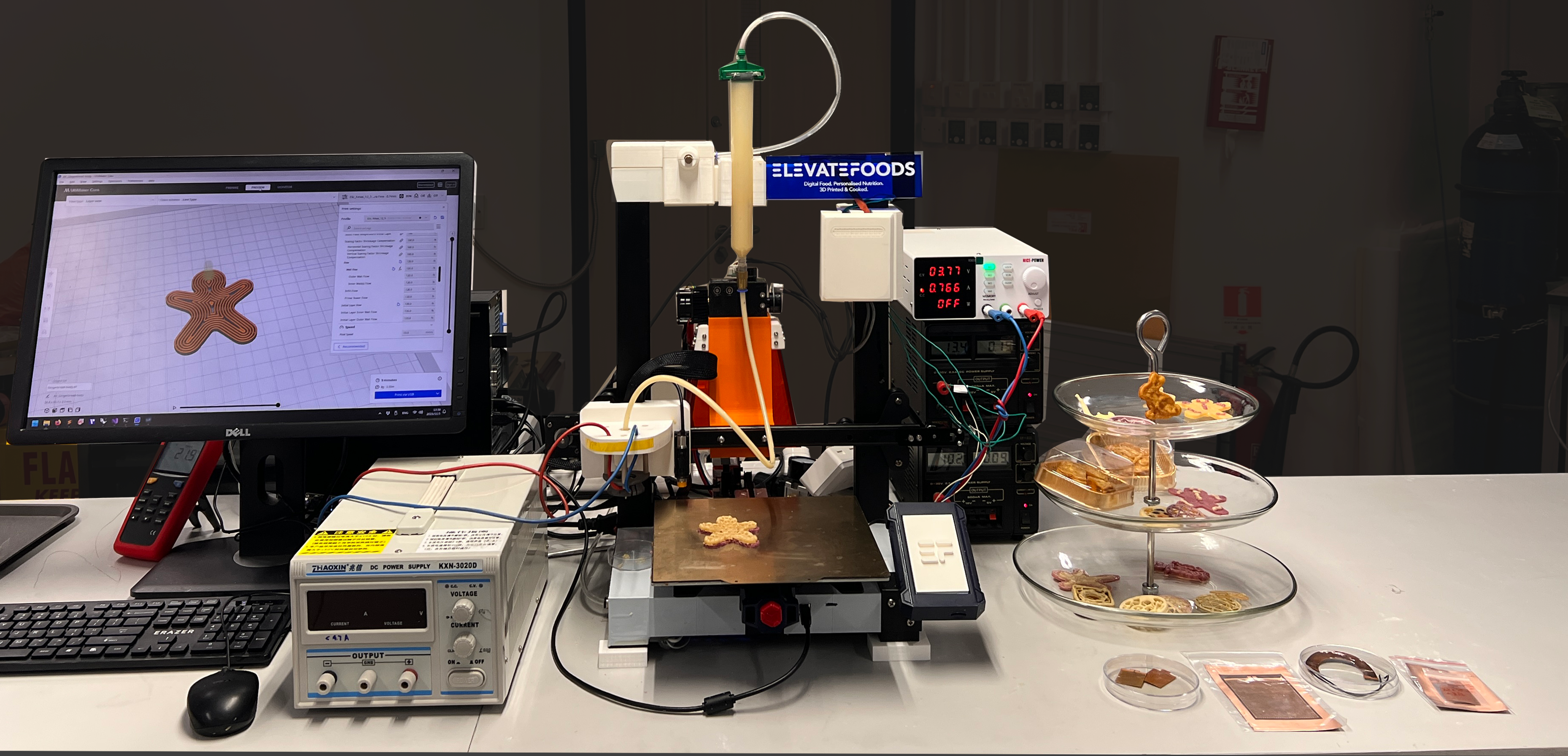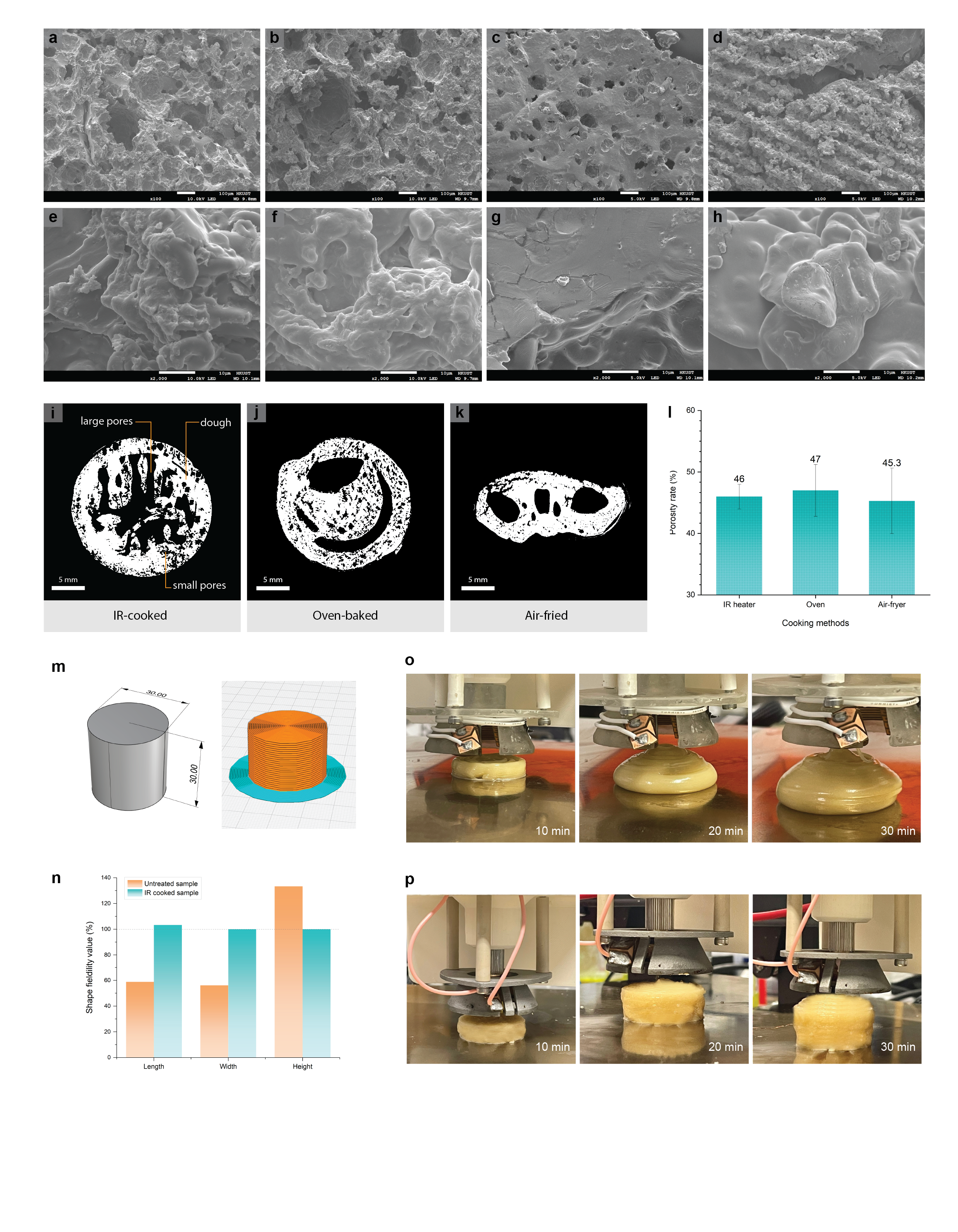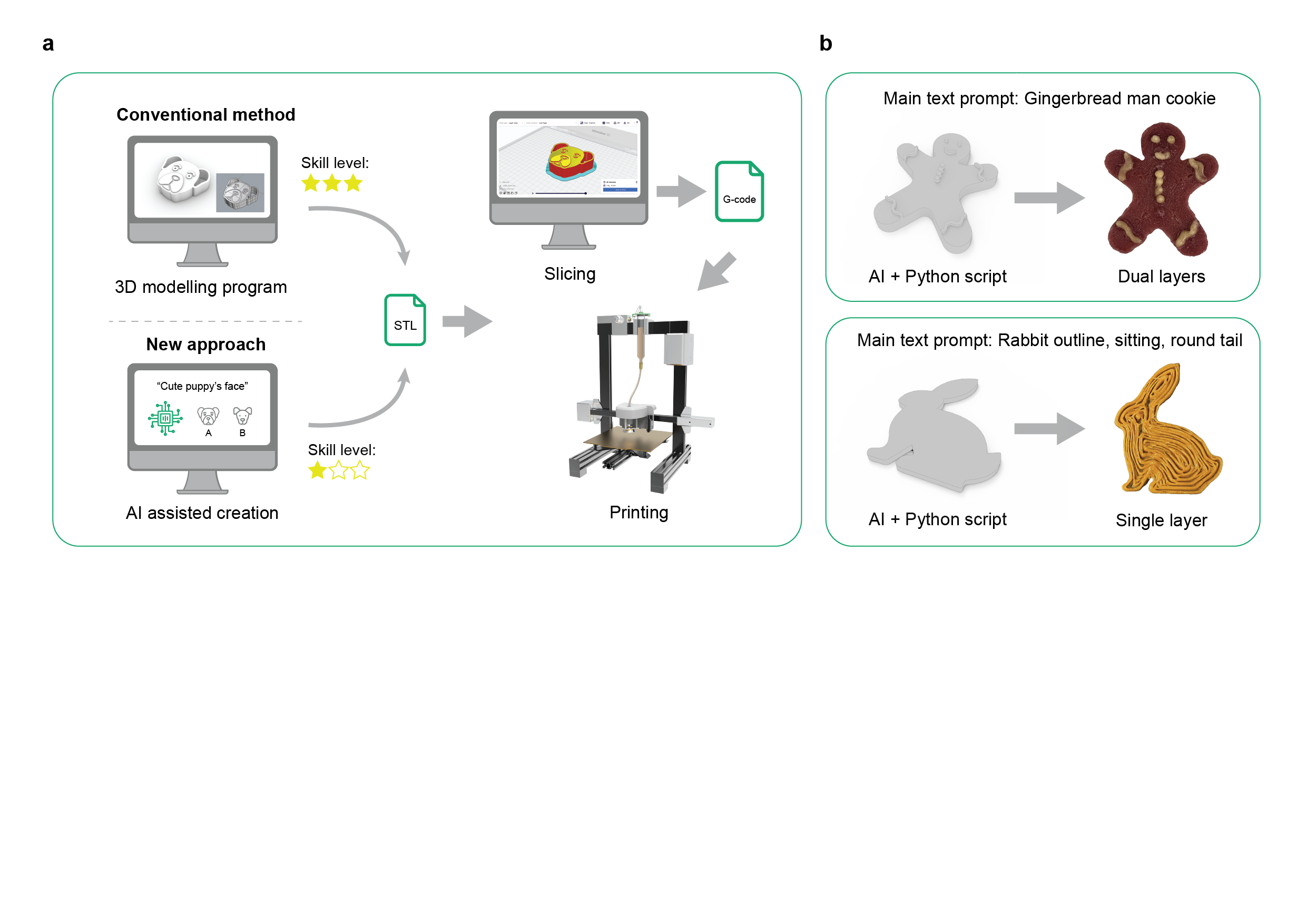Researchers at the Hong Kong University of Science and Technology (HKUST) have developed a cutting-edge AI-assisted 3D food printing solution that combines printing with infrared cooking, paving the way for safer, more efficient, and visually appealing food production.
Traditional 3D food printing methods often require additional postprocessing steps, which can have unappealing food ingredients, imperfect shapes, and even potential microbial contamination.
To address these challenges, the team from the Division of Integrative Systems and Design (ISD) at HKUST has developed an AI-enhanced system that combines extrusion-based printing with simultaneous infrared heating for on-the-fly cooking of intricate starch-based foods. Using graphene heaters for cooking, they precisely controlled the cooking process, ensuring that starch-based food items retain their intended shape and quality.
The system is supported by AI-assisted design, which employs generative algorithms and Python scripts to craft intricate food patterns. By leveraging AI, the design process became accessible to even computer novices.
The research tackles issues such as shape retention and contamination risks and opens up exciting prospects for tailored nutrition—benefiting individuals with special dietary needs, including patients with dysphagia. From enhancing meal customization in elderly care centers and central kitchens to meeting special dietary needs and enabling creative culinary experiences in restaurants, the technology offers a versatile solution for various sectors.
“With its potential to streamline food production processes, improve food quality, and cater to individual preferences, this innovation can transform how food is prepared and served in diverse settings, paving the way for a future where personalized and visually appealing food creations are more accessible than ever before,” said Prof. Mitch LI Guijun, Assistant Professor of ISD, who led the research team.
“We’re excited about the potential of this technology to deliver customized, safe, and delicious food with a process that is both efficient and accessible. It represents a significant step forward in how we think about food creation,” Prof. Li added.
Connie LEE Kong-Wai, the paper’s first author and a PhD student at HKUST, said: “We’ve reimagined what 3D food printing can achieve by merging technology and culinary creativity. Our cutting-edge integrative 3D food printing technology can potentially revolutionize personalized food creation.”
The research represents a collaborative effort spanning user-centric design, mechanical engineering, food science, chemistry, and AI. This cross-disciplinary approach brought together diverse expertise to tackle the complex challenges associated with 3D food printing.
Looking ahead, the team plans to refine the technology by examining the preservation of heat-sensitive vitamins and optimizing starch digestibility. Future studies will also focus on consumer acceptance through sensory evaluations involving target users such as children or hospital caretakers, ensuring that the system is ready for real-world applications.
The study, “Advanced 3D Food Printing with Simultaneous Cooking and Generative AI Design”, was recently published in the top-tier international journal Advanced Materials.
More coverage:
AI-enhanced 3D printing cooks food with infrared precision
Nation – https://www.nation.lk/online/ai-enhanced-3d-printing-cooks-food-with-infrared-precision-302976.html
Phys Org – https://phys.org/news/2025-03-ai-3d-cooks-food-infrared.html
HKUST researchers set to transform food production with AI-enhanced 3D food printing solution
EurekAlert – https://www.eurekalert.org/news-releases/1078779
Chinese scientists create 3D printer that prints ready-made food
Azer News – https://www.azernews.az/region/239765.html
港科大研發人工智能輔助3D食品打印技術,助力精准營養

